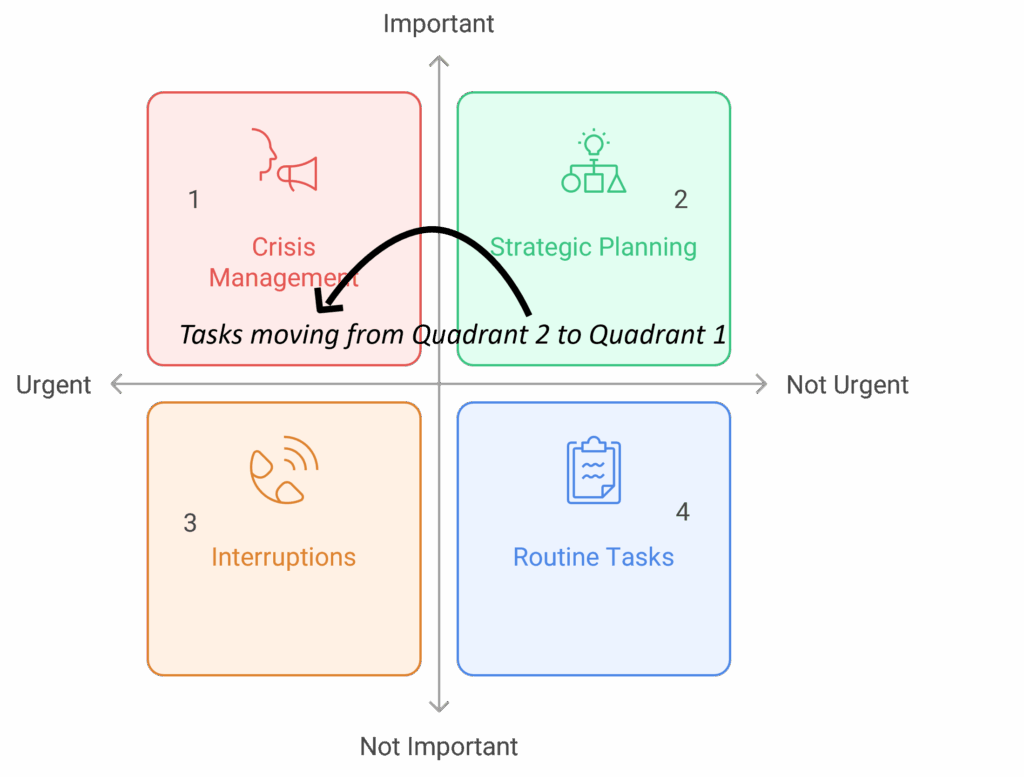You have to send an important email tomorrow — maybe it’s a proposal, an update, or a follow-up. So you tell yourself, “I’ll do it tomorrow.” And technically, you’re right. The sending has to happen tomorrow — which really just means you’ll be pressing the send button then. The preparation, though? That can start right now. Sounds like common sense, doesn’t it? Yet somehow, we miss it more often than we realize.
You could easily draft the email today, let it sit quietly in your drafts folder overnight, and give it a quick look tomorrow before sending it out. You’ll wake up lighter, without that tiny, nagging thought: “Oh, I still have to write that email.” And if you wish to, you might even refine a few lines, soften your tone, or make that one small improvement that comes only after a second look.
 This small act captures something bigger. We often think that unless something is due today, we can wait. But that thinking quietly pushes us from what Eisenhower called Quadrant 2 — important but not urgent — into Quadrant 1, where things become urgent and stressful. And that’s where last-minute tension, rework, and unnecessary anxiety live.
This small act captures something bigger. We often think that unless something is due today, we can wait. But that thinking quietly pushes us from what Eisenhower called Quadrant 2 — important but not urgent — into Quadrant 1, where things become urgent and stressful. And that’s where last-minute tension, rework, and unnecessary anxiety live.
When you start earlier — not just a day before, but as soon as the task appears on your radar — you give yourself space. You see things you might have missed otherwise. You might realise the task is trickier than you expected, that you need more inputs, or that some instruction is unclear. If you discover these only on the day of the deadline, even small tasks can throw your entire schedule off. But when you begin early, you have time to clarify, adjust, and breathe.
Starting early doesn’t mean you have to finish everything right away. It just means crossing that invisible line of getting started. You don’t need to complete the report, record the video, or send the email immediately — but you can draft, outline, or test the first step. Once the ball is rolling, the mind relaxes, and the rest becomes easier.
It’s not about working faster; it’s about working sooner. Deadlines will always be fixed points in time, but your preparation can stretch around them. People who handle work calmly and consistently aren’t superhuman — they just start before they have to.
Next time you think, “I have to finish that next week,” remind yourself, “Which means I should begin this week.” That’s the essence of it all — start before you have to.
Subscribe to my newsletter, to get tips like this and more, directly in your inbox!






